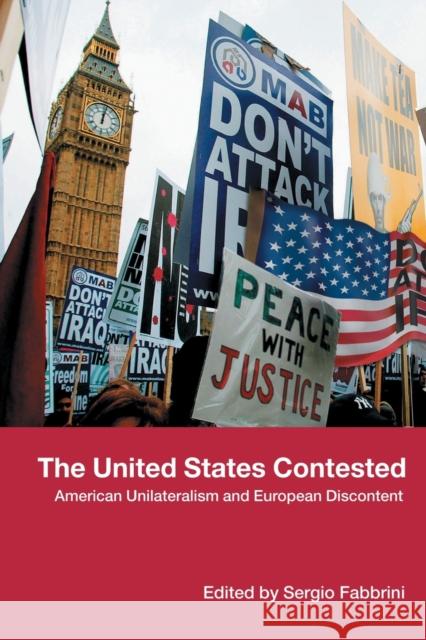The United States Contested: American Unilateralism and European Discontent » książka
The United States Contested: American Unilateralism and European Discontent
ISBN-13: 9780415390910 / Angielski / Miękka / 2006 / 234 str.
The United States Contested: American Unilateralism and European Discontent
ISBN-13: 9780415390910 / Angielski / Miękka / 2006 / 234 str.
(netto: 107,24 VAT: 5%)
Najniższa cena z 30 dni: 100,70
ok. 22 dni roboczych.
Darmowa dostawa!
Why is America contested by Europeans? The book seeks to answer this question and contribute to a better understanding of contemporary transatlantic tensions.
Adopting different theoretical perspectives, the contributors to this volume assess the European discontent with America and relate this to the unilateral turn of US foreign policy in the 2000s. American unilateralism is interpreted by all the authors as the expression of a new conservative nationalism which has been growing in the country since the 1970s and became culturally hegemonic after 9/11. This cultural hegemony found an institutional predominance with the elections of 2002 and 2004. The current conservative nationalism, with its unilateral foreign policy, has presented itself as a radical alternative to American liberal nationalism of the post-world war II era and its multilateral vision of the international system. Moreover, American conservative nationalism appears to be at logger-heads with the post-national evolution of the European states. The latter was largely supported by liberal America in the past and is in the final steps to provide a supra-national constitution for the future. Thus, while conservative nationalism is re-affirming the identity of America as a Westphalian state, Europe, through the European Union, is striving for a post-Westphalian global order. Bringing together leading American and European experts, with a preface by Robert A. Dahl this book explores:
- The rise of American conservative nationalism
- US Foreign policy
- Transatlantic relations
- Anti-Americanism
- The Iraq War
- The future of American political and cultural hegemony
This book will be vitalreading for students of international relations, foreign policy analysis, American and European politics.











